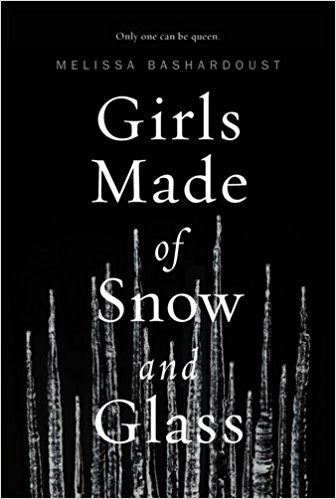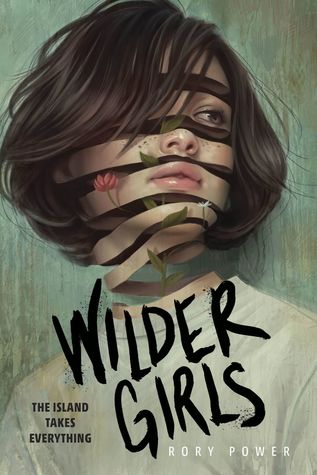For our 2021 conference, as we examine gender and villainy, and relatedly, redemption—fraught topics full of artificial constraints and defied stereotypes—our Books and Breakfast program features titles meant to broaden that examination. We’ve chosen eight works, full of questions, but few answers; dastardly villainy, and occasional redemption; and a number of female and nonbinary villains who may, despite or because of their villainy, be someone worth celebrating.
Earlier this summer, we highlighted our graphic selections: Monstress: Awakening and Nimona; and our adult selections: A Feast of Sorrows, Queen of the Conquered, and The Mere Wife. Today, we’re showcasing our three young adult selections: Girls Made of Snow and Glass, Slice of Cherry, and Wilder Girls. We hope these features will help you make your choice and tackle your reading before Sirens next year.
2021 BOOKS AND BREAKFAST SELECTIONS
A Feast of Sorrows by Angela Slatter
Girls Made of Snow and Glass by Melissa Bashardoust
Monstress: Awakening by Marjorie Liu and Sana Takeda
Nimona by Noelle Stevenson
Queen of the Conquered by Kacen Callender
Slice of Cherry by Dia Reeves
The Mere Wife by Maria Dahvana Headley
Wilder Girls by Rory Power
Girls Made of Snow and Glass by Melissa Bashardoust

In this take on “Snow White,” sixteen-year-old Mina, missing a heart, escapes one abusive household for another—where she can capture the love of the king for herself, even his power, provided she is ready, so young, to become a stepmother. She’s to be mother to Lynet, who has been conjured to life in her mother’s image from a snowfall. And as in “Snow White,” the two are set at odds. Mina has been loved too little, and wants the crown any way she can have it. Lynet, conversely, has no desire to be queen, and would be happy enough to spend her days with her girlfriend and to be looked on as something besides the embodiment of her mother.
The evil stepmother is a classic villain: cold, beautiful (but in a scary way), a usurper. In Bashardoust’s version, the stepmother must take that role, whether she wants to or not, and her relationship with Lynet, close in age, is complex and painful. It’s bittersweet that the two have been positioned as enemies, and the wedge between them makes the story compelling. Rarely do we see mother-daughter relationships in stories about young adults; even more rarely do we see them in fantasy books for young adults. Mina and Lynet’s intertwined stories provide a rich exploration of relationships between women—with all the twisty, messy, emotional resonance that non-romantic relationships have in real life, and don’t always get their due on the page.
Girls Made of Snow and Glass is full of icy atmosphere and fairytale references, but at its heart—no pun intended—it’s a story about love. What we do to receive love. How we choose whom to hate, and whom to mark as villain. How villains can be created by society. And it’s also about mothers and daughters, and how we make families. How we tell stories, and how the telling makes heroines and villains. And how, in the end, we can choose the stories told for us or choose to make our own.
Slice of Cherry by Dia Reeves

Kit and Fancy Cordelle are sisters, daughters of the infamous Bonesaw Killer, a serial killer who ravaged Portero, Texas, before being caught and jailed. But no matter how strange Portero is—if you’ve read Reeves’s Bleeding Violet, surely you remember how strange Portero is—no matter how much Bonesaw Killer fan mail still arrives at the house, and no matter that neither Kit nor Fancy had anything to do with their father’s murders, Kit and Fancy are ostracized. Surely the apple couldn’t have fallen too far from the tree—a convenient statement when one seeks to oppress Black girls. But never mind that: Kit and Fancy will tell you that they don’t mind. They’re the best of friends (as Fancy says, practically the same person).
And despite their previous innocence, they are perhaps not so different from their father after all—or perhaps assumptions are a powerful catalyst: Kit and Fancy both harbor a desire to harm, to carve people up and stitch them back together, to pull them apart until they crack, to kill. Unlike their famous father, though, Kit and Fancy will be the first people to tell you that they harm only those who truly deserve it, those who touch or invade or harm first. They’ll also tell you that they’re smarter than their father: They use a mysterious doorway to another world to cover their tracks. And everything would be fine, perhaps—Portero surely won’t look too hard for a few missing predators—except that, despite Fancy’s assertion, Kit and Fancy aren’t the same person at all. Kit wants to grow and change, make friends, and have a boyfriend, while Fancy wants to stay in her tiny, controlled world, happily basking in the gore that she and her sister share.
Slice of Cherry is, in every way that matters, a Black feminist revenge story. In Kit and Fancy’s vigilantism, Reeves claims violence for Black girls harmed by the world. Kit and Fancy are broken by their father’s crimes, their mother’s absence, the town’s ostracization, and seemingly everyone’s assumptions. But that brokenness creates neither victims nor, despite the carnage, villains. Kit and Fancy take their power, claim their power, every time they cut an attempted rapist, every time they stab an intruder. Don’t shy away from the danger and violence of Portero; Reeves’s story of Black girls who are cast as villains but who will not be victims is one for our world, too.
Wilder Girls by Rory Power

As you begin Wilder Girls, the students and instructors at Raxter School for Girls in rural Maine have been quarantined for 18 months. That’s when the Tox began ripping through the country, causing grotesque mutations in people, fauna, and flora alike: second spines, new organs, scales, eventually death. Outbreaks are individual and unpredictable, but at this point, the girls are just holding on, relying on supplies from the outside world, and hoping for a vaccine.
Hetty, one of the students, is unexpectedly chosen for Boat Shift, one of the few jobs that can get a girl off school grounds, in this case to retrieve those all-important supplies. With this new responsibility comes new knowledge, and Hetty sees the transformations and destruction around her in a new, even more desperate light. And that desperation pervades Wilder Girls, which is built on the dawning horror that things can always, and so often do, get worse. Without giving too much away, after 18 months of increasing desolation, Hetty finds a villain—and it’s worse than she could have imagined.
The foundation of Wilder Girls is its (almost) all-female cast—and the possibilities born of crafting a book around only female characters. The mean-girls trope you often see in YA is absent—jettisoned along with boys and the omnipresent white heteropatriarchy—and instead Power creates girls that are just girls: sometimes smart, sometimes ambitious, sometimes mean. Sometimes they get along and sometimes they don’t. Some are heroes and some are villains and some are neither. This isn’t some quarantine-created feminine utopia, but rather a cast of real girls who are real people in an impossible situation. You might call it a feminist utopia. And that is magnificent.







Connect with the Sirens community
Sign up for the Sirens newsletter